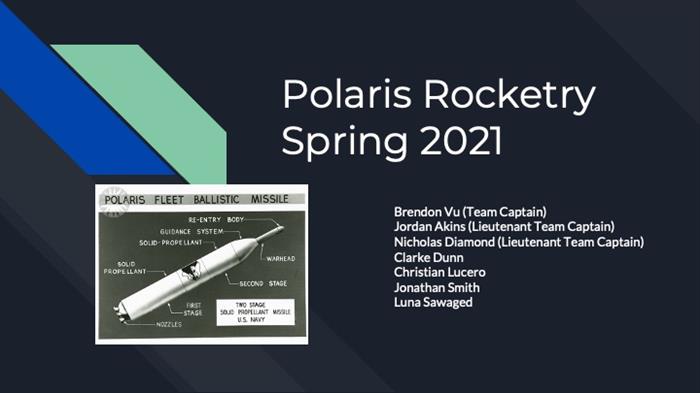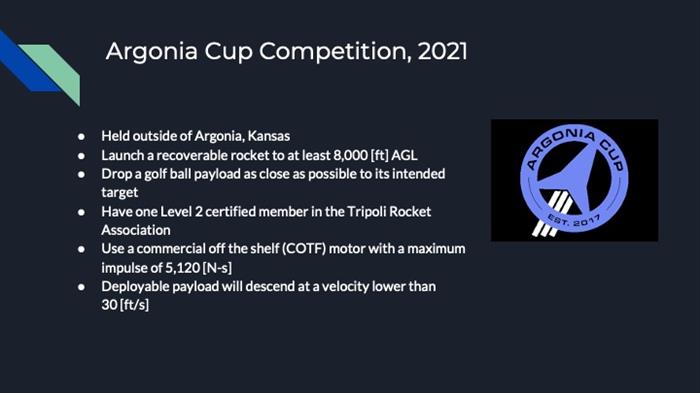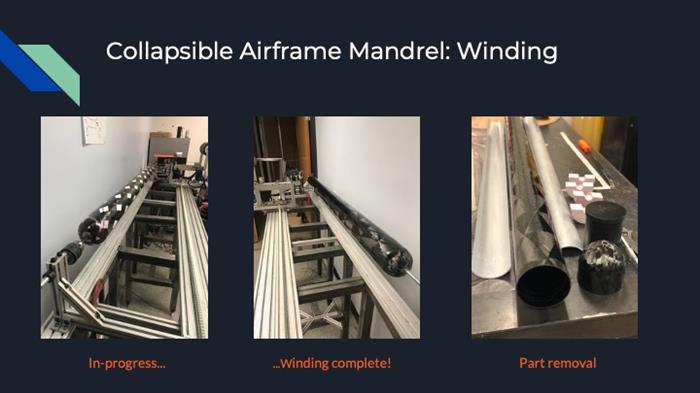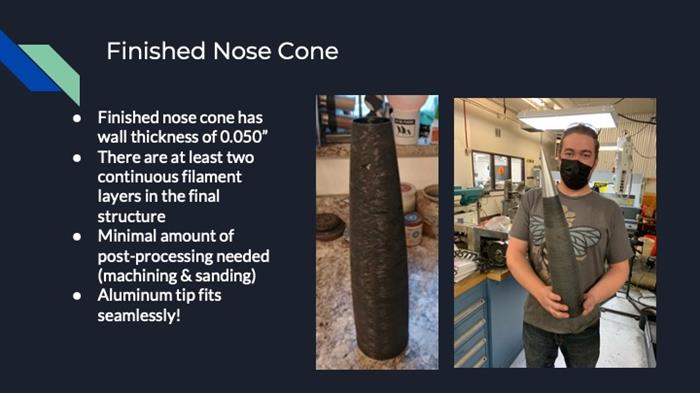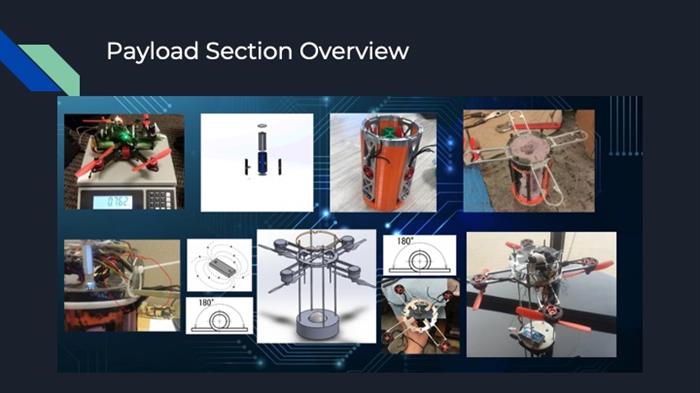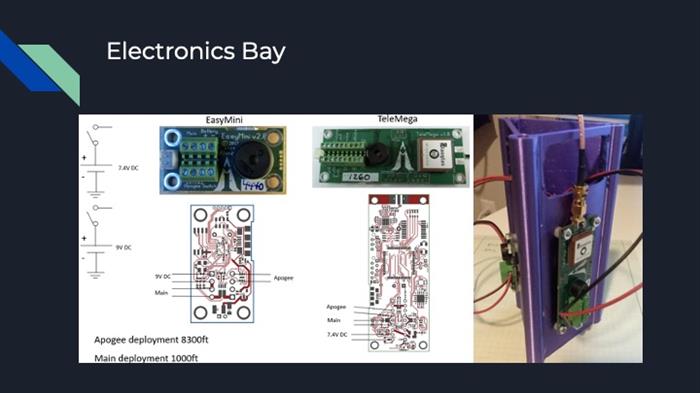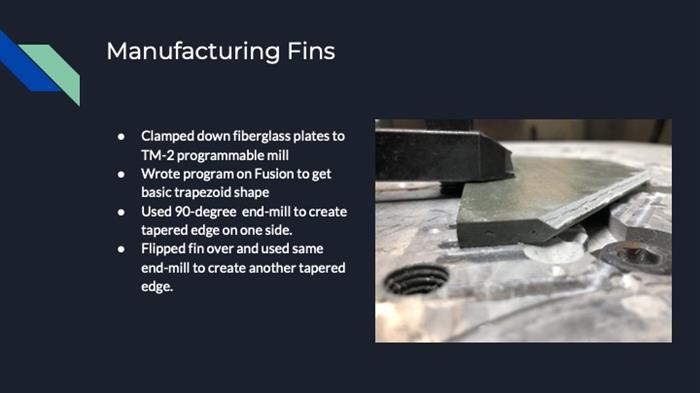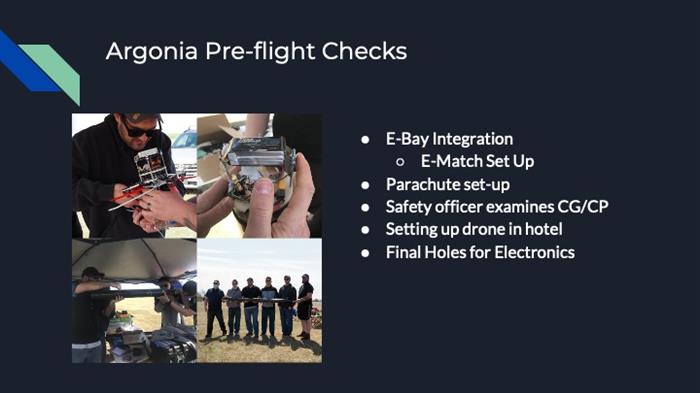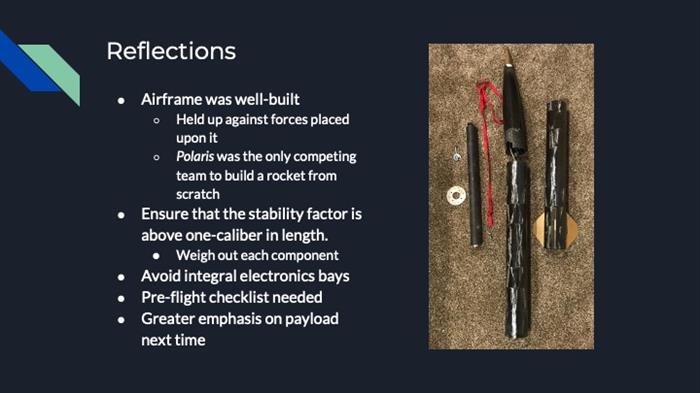Polaris Rocketry
Department of Mechanical Engineering
Project Abstract
In the 2020-2021 school year, CU Denver’s Polaris Rocketry team set out to compete in the 2021 Argonia Cup Challenge in Argonia, Kansas. The requirements were to launch a rocket to over 8,000 feet using a commercial motor while guiding a golf-ball payload to a pre-determined target location with a descent rate of no greater than 30 feet per second in the vertical plane. To accomplish this task, the Polaris Rocketry team needed to attain a member with a Level 2 Tripoli Rocket Association certification that would allow more powerful rocket motors to be flown. This was accomplished in March of 2020. Although not a requirement, the team agreed that building a rocket that was almost entirely made from scratch would be the most beneficial in terms of design and learning experiences. As a result, the rocket’s motor mount, airframe sections, couplers, and nose cone were wound with carbon fiber and epoxy-filament over the course of several months. Fiberglass fins, bulkheads, and centering-rings were also manufactured to suit the needs of the rocket. Simulations were conducted to examine the proper shapes and material properties that would result in the greatest altitude based on the off-the-shelf motor that was chosen. With the rocket expecting to travel well-into transonic speeds and potentially breaching the speed of sound, weight reduction and aerodynamic streamlining were of the upmost importance. Arguably one of the critical and time-sensitive elements was designing, coding, and the manufacturing of a drone that would eject from the rocket itself and deliver the golf ball payload to its intended target. This goal presented the greatest technical challenge as our team was inexperienced in the realm of unmanned aerial systems (UAS). With each innovative design that was implemented, the weight of the prototypes dropped as complexity increased. Over the course of the design process, the payload section lost approximately a pound of weight while also providing greater flight characteristics. As components were coming together, testing was required for the rocket’s electronics and ejection charges, which were conducted in early March. The Polaris Rocket team participated in the Argonia Cup on March 27th, 2021. Although we did not win the competition, we are incredibly proud of the progress that was made in the last 10 months, especially as we held the distinction of being the only team with a scratch-built rocket.
